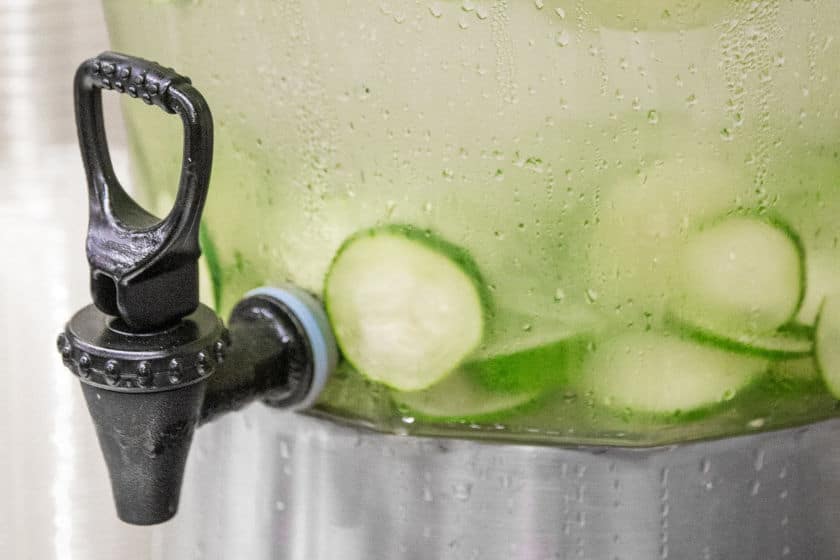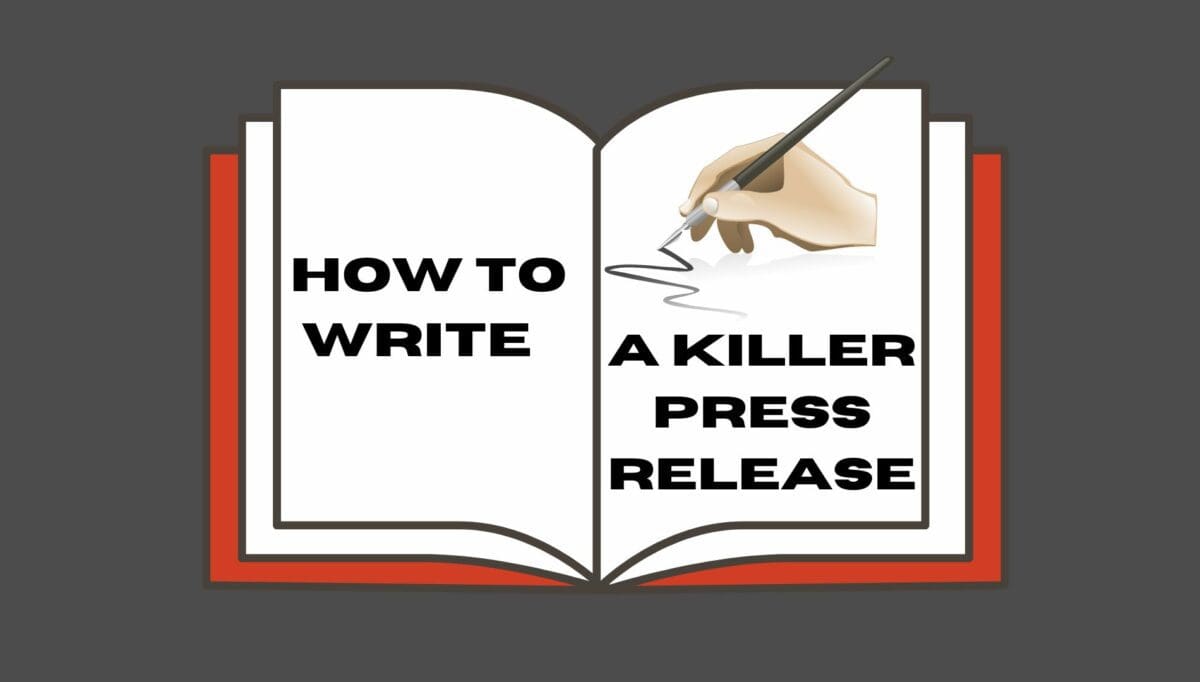If you’re a professional vocalist or aspiring to be one, catching a bug can be really debilitating. You can’t usually postpone a show, gig or audition, so how do you continue to sing well with a cold or a cough?

How to sing with a cold or cough? The key to singing with a cold and cough lies in good technique and knowledge of reliable remedies. Understanding how to take care of your vocal cords when sick and how to medicate your throat will help you get through shows and gigs during a bout of illness.
This is an issue that artists deal with every year, along with associated problems like laryngitis and voice loss. Yet it is possible to perform well even if you’re bunged up, have a raspy singing voice and having to blow your nose every five minutes. Here we share renowned industry tips and remedies for effective singing with a cold and cough.
Are you releasing new music?
Book a meeting with a Music Gateway A&R today.
Discuss release strategies, distribution, growing your fanbase, organic playlisting, press, radio and more.
Singing with a Cough and Cold
Unfortunately, it’s inevitable as we head into the autumn and winter season, that coughs and colds start doing the rounds. At this time of year, we spent more time indoors with other people, resulting in the spread of germs. On average adults get two or three colds a year, while kids may suffer from up to five. Those who have diabetes, an autoimmune condition, asthma and smokers are likely to get worse colds and be at risk of complications.
There is no real cure for the common cold and as there are many strains, you can catch numerous types in the space of one season if you’re run down. For singers, this is more than just an inconvenience, or uncomfortable. Singing With A Cough And Cold can have a major impact on what you’re able to do as a performer. Being aware of how you can overcome, prevent or even briefly suppress your symptoms will allow you to treat them and kick that cold when it does arrive.
Can a cold affect your singing voice?
A cold will almost certainly affect your singing voice as it hits your nose, sinuses, ears, throat and possibly your lungs too. The most common effects are the lowering of your vocal register, the loss of higher notes and a huskier, perhaps even claggy tone caused by a build-up of mucus in your upper respiratory tract. Your vocal cords become dry and, if you’re coughing too, very tired. Singing With A Cough And Cold puts you at risk of vocal strain and damage if you’re not careful.
If you have worked to get a large vocal range already, the loss of a few notes will have less of an impact.
Is singing bad when you’re sick?
It’s not necessarily the case that singing when sick is altogether bad. It depends what you’re singing, for how long and whether you’re taking proper care of your voice in the process. For most artists, there isn’t the option to stop singing altogether when that cold hits. Yet Singing With A Cough And Cold needs to be approached with caution.
What do singers do when they have a cold?
Where possible, singers will rest their voices rather than Singing With A Cough And Cold. But if big gigs have been booked then the show must go on. So to counteract the negative effects, singers will usually do many of the following things:
- Hydrate even more frequently with lukewarm water
- Cut out all dairy products
- Sleep as much as they can
- Wrap up warmly, especially over the throat and mouth in winter
- Take supplements like vitamin C and echinacea
- Use over-the-counter and natural remedies (more on those later)
- Cut back on sugar as this inhibits the immune system
- Choose appropriate repertoire
Is it ok to sing with a sore throat?
A sore throat is a higher risk than just a cold, although the two often go together (a cold may start with a sore throat). If your throat is sore it may be an infection, or it may be a vocal strain. And if you’re Singing With A Cough And Cold, you’re more likely to hurt your voice. This is the time to sing your easiest numbers, with little belting and no super high or low notes.
How to singing with a cold and sore throat
If you do need to consider Singing With A Cough And Cold, you must ensure you treat it gently with ample warm-ups and warm-downs.
Vocal warm-ups for sore throat
You’ll need to warm up very gently if you have a sore throat, but don’t be tempted to skip it to optimise rest time. If your throat is sore a warm-up and warm-down should be mandatory. Here are some great exercises to do when you’re sick and need some vocal TLC.
Songs to sing with a sore throat
If you’re able to choose your songs then opt for something gentle, like a crooner, easy listening number, or non-taxing pop song. When Singing With A Cough And Cold, avoid anything even vaguely out of your natural range, very fast, or big ballads. Songs by singers like Frank Sinatra, Sammy Davis Junior, Ella Fitzgerald, Ed Sheeran, Ellie Goulding, Lilly Allen and Jain are worth considering.
Singing with a cough
Aside form Singing With A Cough And Cold, there’s nothing worse than a tickle in your throat when you start singing. A cough can keep you awake at night and affect your speaking voice too.
Does coughing affect singing – can you sing with a cough?
Unlike congestion, coughing doesn’t affect your vocal tone, but the dryness can cause your voice to crack. The urge to cough can override your desire to sing too. It’s a reflex, so tough to stop. It really depends on how bad your cough is, but even in the worst-case scenario, with some medication and lots of water, you should be able to manage a short performance though. Here are some of our top remedies for Singing With A Cough And Cold for a gig or show with an annoying cough and cold.
Voice remedies for singers with a cold
Fortunately, there is a range of tried and tested remedies to help you get through your cold as a singer. And some of them won’t cost you a penny.
Scratchy throat remedies for singers
Here are some recommended remedies for a scratchy throat.
- Take a teaspoon of honey – manuka is best as it has anti-bacterial properties
- Gargle with salt water several times a day
- Suck on a VocalZone lozenge
- Cough syrup isn’t ideal, but it will keep a scratchy throat at bay long enough to get through a show
Vaporizer for singers
Like smoking, vaping has a negative impact on the voice, drying it out. There’s no such thing as a ‘good’ vape for singers. So instead swap your vape for some natural vapour! When you have a cold a great way to clear mucus and get everything flowing in your respiratory system, is inhaling the steam.
You can buy a special device, or do it the old-fashioned way: hang a tea towel over your head and lean over (not into) a bowl of hot water.
How to clear mucus from throat for singing – Mucinex for singers
Another remedy that may be worth trying is Mucinex or guaifenesin. This medication helps loosen the phlegm in your airways and repress a cough. Ask your pharmacist for advice on taking this as it will not be suitable for everyone.
If you’re trying to clear mucus do steer clear of milk at all costs too.
How can I make my voice sound better when sick?
When it comes to Singing With A Cough And Cold, if you can get rid of a stuffy nose and get air through your sinuses you’ll sound much more like your usual self. You can also harness that husky or raspy tone as a new sound.
How to clear your sinuses for singing
The best way to clear a stuffy nose naturally is to move around. If you lie or sit in one position you’ll get more bunged up. If you have the energy you might want to go for a jog or dance. On simply walk around for a while and get some fresh air before you sing.
Keep your head high so the fluid can drain down away from your nose and respiratory tract. If you need something more, you could try an over the counter decongestant from the pharmacy. Some of these are taken in pill form and others are squirted up your nostrils.
You can also try sinus massage and acupressure to drain and relieve your sinuses.
How to sing with a stuffy nose
If all else fails you may have to sing with a stuffy nose. If you can’t breathe through it, you have no option but to take your breaths through your mouth instead. You’ll find you have a more nasal tone (think Barbra Streisand), so work with it and choose songs to suit the sound.
Singing after a cold
A cold may last a few days or a couple of weeks – and coughs can drag on even longer if you’re unlucky. Be patient, look after yourself and you’ll soon be back to full strength.
How do you get your voice back quickly from a cold?
If you push through your cold and do a lot of singing, it may well take longer to recover afterwards. So if you want a speedy return to normal, rest, sleep and eat and drink healthily. There are no real shortcuts. You can stave off symptoms for brief periods, but these are short term solutions. The healthier you are overall, the better your immune system will be. And the better your immune system is, the quicker you’ll get your voice back from a cold.
We now know that gut health plays a big part in immunity and overall wellbeing. So foods that are high in probiotics and probiotics like kimchi, kefir and leafy greens are worth incorporating into your diet.
Singing with a sinus infection
If your sinuses have suffered particularly with a cold, you may develop sinusitis. This is where the lining of the sinuses becomes inflamed and painful.
Taking ginger, cinnamon, cayenne, cardamon and elderflower are all good natural remedies for helping heal your sinuses and get rid of mucus. These can be added to your food, or taken as infusions (the steam will be beneficial too).
You may also want to try nasal irrigation before Singing With A Cough And Cold. This is to flush out the sinuses and nose with a saline solution. It restores moisture and soothes the airways. It is very important that you use a proper rinse purchased at the pharmacy (definitely no homemade versions) and follow the instructions properly. If not carried out correctly it can cause further infection.
And looking after your voice doesn’t stop when your cold, cough or sinus infection is all cleared up. Protecting your vocals as a singer goes much further and is an ongoing priority.
These are our tips for singing with a cold and cough, but prevention is better than cure. Start now. You might want to consider getting an annual flu jab. It won’t stop you getting a common cold, but will greatly lessen your chance of contracting a bout of flu. Flu is much worse than a cold and will definitely stop you getting on stage for a period if you catch it. So it’s well worth thinking about.
Make it a part of your lifestyle to take regular exercise, eat lots of fruit, vegetables, nut, seeds and foods with high nutritional content. Drink plenty of water and herbal teas and if you need a little boost, take a vitamin and mineral supplement to see you through the winter season. Not only will this help guard against colds (and help you bounce back quickly when you do get them), you’ll feel great for it.
Related Questions to Singing With A Cough And Cold
- What helps a singer’s throat?
Throat health comes from practising your vocal technique, drinking plenty of water (or herbal tea), not smoking, limiting caffeine and alcohol and not screaming or shouting too often. The more you sing, the stronger it gets, providing you’re doing it properly and breathing from the right places.
- Why do I cough when I sing?
This may be the sign of a respiratory tract infection, such as a cough, cold, flu or bronchitis. Your voice is probably dry too. Take plenty of liquids and if it continues, see a doctor for further advice and diagnosis.
- Is it bad to sing with bronchitis?
It’s not ideal, but it’s not impossible. As your bronchial tubes will be inflamed and you’ll be congested with mucus, you’ll need to follow our advice for singing with coughs and colds, and rest when you can. Peppermint tea is said to be very good for bronchitis.
Do you have any tips and remedies for singing with a cold and cough? What works for you? Tell us about it in the comments below.









